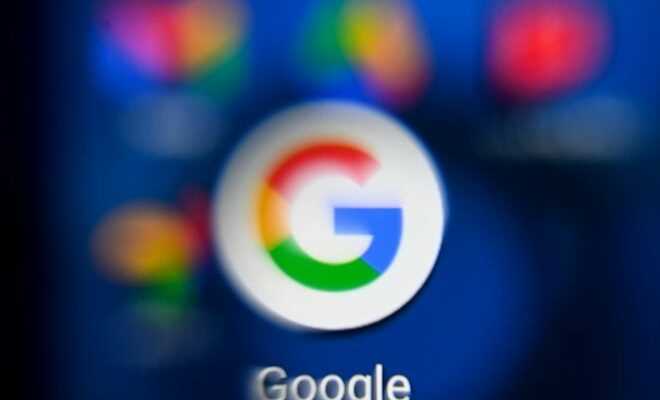Google presents a new system to end these files to better target Internet users (AFP/Archives/Kirill KUDRYAVTSEV)
Soon the end of “cookies”? Google presented on Tuesday a new system to put an end to these files allowing to better target Internet users, a project dreaded by the world of digital advertising which is due to this precious data.
In addition to Google, Apple has also embarked on a battle against “third-party cookies”, digital tracers external to the site consulted, which make it possible to follow the navigations of Internet users and analyze their behavior in order to send them targeted offers, most likely to trigger a purchase.
In the system – still in development – presented on Tuesday, the principle would be that the Internet user himself has control of his advertising profile, via his Chrome browser.
According to the American group, Chrome would identify themes “representative of the main centers of interest” of the Internet user “for a given week, such as + fitness + or + travel +, depending on the browsing history”.
These themes would be “kept in memory” to allow the generation of possible targeted advertisements “for only three weeks, before being deleted”, specified Google.
This process would happen “entirely on the device used, without involving external servers, including Google servers,” the company said.
Internet users would have “control settings” available to them “allowing them to see shared themes, delete those they do not like, or even completely deactivate the functionality”.
The system replaces another system proposed in February 2021 by Google, which does not seem to have been satisfactory.
– Implementation “by the end of 2022” –
At the time, the group had proposed another system called “cohort targeting”: it involved avoiding targeting individuals, by instead forming a group of individuals with similar characteristics (center of interest, etc…), identified by a unique identifier.
The new proposals made on Tuesday are currently “at the concept stage” and must now be discussed with web professionals, Google said.
“The objective is to ensure that these technologies are deployed by the end of 2022”, so that Internet players “can start their adoption in stride”, he added.
Site publishers and players in the advertising market are very worried about Google’s desire to eliminate advertising cookies.
A group of German publishers, including the giant Axel Springer, which notably publishes Bild, has just seized the European Commission to complain about the initiative of the American internet search giant, the Financial Times reported on Monday.
The new model advocated by the American giant “will affect the advertising market and disrupt the business model of the digital press”, had already denounced, in March 2021, the European Magazine Media Association (EMMA) and the European Association of newspaper publishers (ENTA).
It would “ultimately” allow Google “to further extend its own data monopoly”, added these associations, since it will “no longer be possible for third parties to understand and process the data records in a meaningful way. “.
In January 2021, the British competition police announced the opening of an investigation into the changes announced by Google on “cookies”.
Google has offered commitments in response to this proceeding, which, if accepted by the UK Competition Authority (CMA), will have worldwide effect.
These commitments provide in particular that “advertising products and Google sites do not receive preferential treatment or advantages” as a result of these new systems.
The American giant alone held 28.6% of the global digital advertising market in 2021, according to the firm eMarketer, just ahead of Facebook and its 23.7% share of the cake.
© 2022 AFP
Did you like this article ? Share it with your friends with the buttons below.




